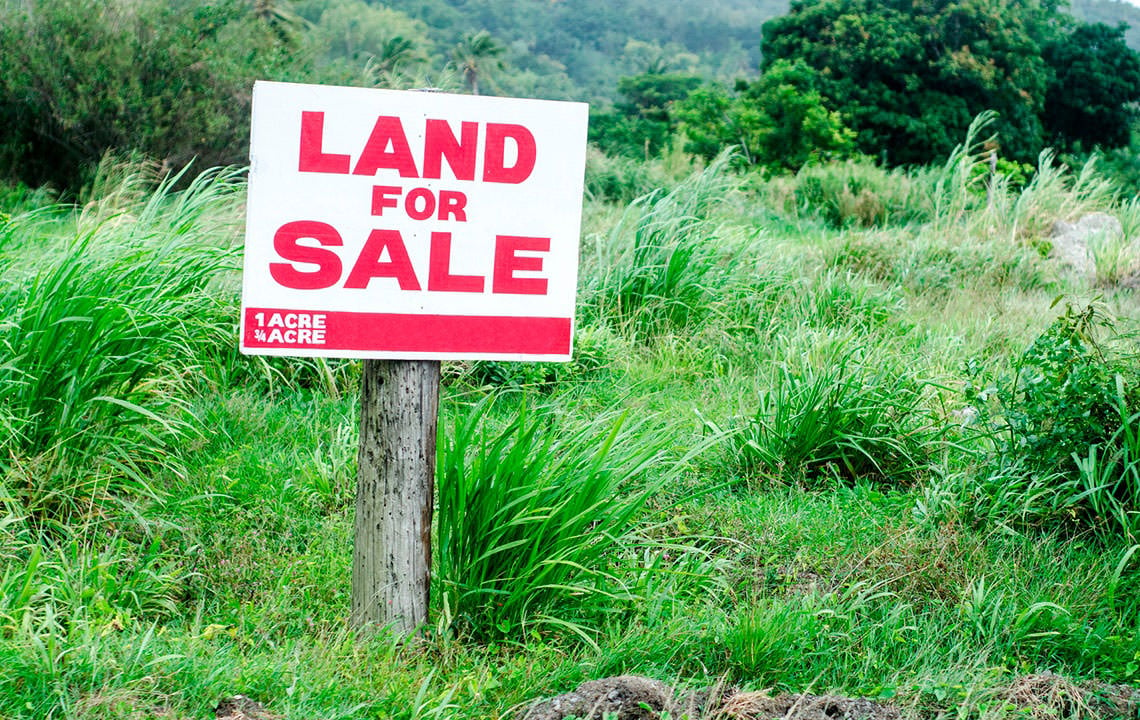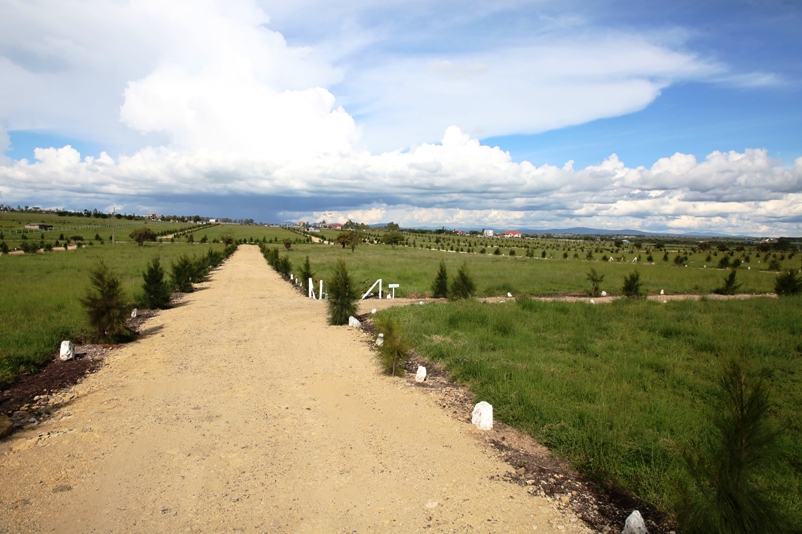Blog
Home / Blog

The Comprehensive Guide to Buying Land in Kenya: A Step-by-Step Process
Investing in land is an excellent opportunity to secure your financial future, and Kenya, with its diverse landscapes and booming real estate market, presents an enticing option. However, navigating the process of buying land in Kenya can be complex, especially for first-time buyers. In this comprehensive guide, we will walk you through the step-by-step process of buying land in Kenya, ensuring that you are well-informed and prepared for this significant investment.
Define Your Objectives and Research: Before embarking on the land buying journey, it is crucial to clearly define your objectives. Determine the purpose of the land purchase, such as residential, commercial, or agricultural use. Research the location, considering factors such as infrastructure, amenities, and future development plans. This groundwork will help you narrow down your options and focus your search.
Engage a Qualified Real Estate Agent: To navigate the Kenyan real estate market effectively, it is advisable to engage a qualified real estate agent or lawyer. Seek recommendations, check their credentials, and choose someone with a strong track record and local market knowledge. An agent will guide you through the process, assist with property search, verification, and negotiation, and ensure compliance with legal requirements.
Verify the Land Ownership and Title Deed: Land scams are not uncommon in Kenya, making due diligence vital. Request the seller to provide the original title deed for verification. Cross-reference the title deed details with the Ministry of Lands' online portal to ensure its authenticity and confirm the owner's details. Engage a lawyer to conduct a comprehensive search at the Land Registry to verify the property's ownership and ascertain whether there are any encumbrances or legal issues.
Conduct a Physical Site Visit: Once the preliminary verifications are complete, schedule a physical site visit to the land. Assess the terrain, access to roads, proximity to utilities (water, electricity, sewage), and neighboring properties. This visit will help you evaluate the suitability of the land for your intended purpose and identify any potential challenges or restrictions.
Engage a Licensed Land Surveyor: To establish the accurate boundaries of the land, engage a licensed land surveyor. They will conduct a detailed survey, demarcating the boundaries and providing a survey plan. This plan will be crucial during the transfer process and for future development or construction on the land.
Negotiate and Draft Sale Agreement: Once you have finalized your choice of land, negotiate the terms of the purchase with the seller. Seek legal advice to draft a comprehensive sale agreement that includes all relevant details, such as purchase price, payment terms, completion period, and any additional conditions. Ensure that the agreement is fair, protects your interests, and complies with Kenyan laws.
Perform Land Searches and Obtain Consent Documents: Before completing the transaction, conduct relevant land searches to confirm the land's status, including outstanding rates and taxes. Additionally, if the land falls under a group ranch or community land, obtain consent documents from the relevant authorities or community representatives.
Complete the Transaction and Transfer of Ownership: With all the necessary documentation and approvals in place, complete the transaction by settling the agreed-upon payment. Engage a lawyer to oversee the transfer process, including stamp duty payment, land registration, and updating of the title deed with your details as the new owner.
Buying land in Kenya can be a rewarding investment if approached with diligence and proper understanding. By following the step-by-step process outlined in this guide, you can navigate the complexities of land acquisition, mitigate risks, and ensure a smooth and successful purchase. Remember, working with professionals, conducting thorough due diligence, and seeking legal advice are essential to protect your interests and make informed decisions. Happy land hunting

Genuine Land for Sale
Genuine Land for Sale
It is the desire of all of us to have a place we call home. This is easy if you are based in your
ancestral location since land is inherited. However if you move out of your ancestral home for
work or business, then you will have to rent a place to live. This is not sustainable in the long
term hence the need to buy land and build. The land can be as small as a plot. As long as it is
enough to build a house, it is much welcome. The process of searching and buying a piece of
land is however not an easy one.
However, since you are here, we will walk you through the process of acquiring a genuine plot
for your home. So if you want a plot for sale in Ruiru, Juja, Matuu or other places in Kenya keep
reading. There are crucial factors to consider before buying a plot for sale. Among the top
considerations will be your budget, the location, the amenities and the existing infrastructure.
Top 5 factors to consider when buying land:
Budget
Location
Infrastructure
Amenities
Real estate partner
Once you have figured out the location, it is important to identify a reliable real estate partner.
This is because a real estate partner will help you throughout the land buying process. When
you work with our company, we bring on board our years of experience in the real estate
industry to help you get genuine land for sale at the best price. We also give our clients flexible
repayment periods that help you acquire the plot for sale without straining.
Once you contact the real estate company, you are informed of the available plots for sale. If
you identify a plot that is within your budget, a site visit is important. This is because when you
visit the site, you get to know the plot in detail. You also get to ascertain the environment and
gauge if it meets your expectations.
After the site visit, if you are satisfied with the plot for sale, the real estate partner will guide
you on the transaction stages. At this stage, there is a binding agreement that is drafted at the
advocate’s offices and you are now ready to make payments for your plot. You can either make
a cash payment at once or pay in instalments. Once the payment is completed, the process of
title deed processing begins. The title deed is a legal document that proofs that the registered
person is the owner of the land. Once The title deed will be out in about 6 months.
If you want to get a genuine plot for sale in Ruiru, Juja, Matuu or other place in Kenya, do not
hesitate to contact us. All of us here at Zayorn General Ltd are passionate about helping you
actualize your land ownership dream. We will wall with you from today until your dream
becomes a reality. Our greatest satisfaction is having another land owner through our company.
Talk to us today through the contact details below. You can also pay us a visit at our offices.
Phone: 0726564924
Email: info@zayornltd.co.ke
Location: 1st Floor, Arch Business Centre
Eastern Bypass Ruiru, off Thika Road
Buying and Selling of Land

Exploring the Dynamic Landscape of Land Prices in Nairobi, Kenya
The vibrant city of Nairobi, Kenya, is not only the capital but also the economic and cultural hub of East Africa. With a rapidly growing population and thriving business opportunities, the demand for land in Nairobi has skyrocketed in recent years. In this blog post, we will delve into the fascinating world of land prices in Nairobi, exploring the factors that influence them and the trends that shape the real estate market in this dynamic city.
- Urbanization and Population Growth
Nairobi's population has been rapidly expanding, fueling the demand for residential, commercial, and industrial spaces. The influx of people from rural areas, coupled with a rising middle class and increased urbanization, has led to a surge in land prices. As more people migrate to Nairobi in search of better job opportunities and improved living standards, the demand for land continues to rise, putting upward pressure on prices.
- Infrastructure Development
Nairobi has witnessed significant infrastructure development in recent years. The construction of modern highways, expansion of the airport, and the implementation of new transportation systems have transformed the city's connectivity and accessibility. Areas with improved infrastructure and convenient transportation links tend to attract higher land prices. For instance, locations near major roads, the Central Business District (CBD), or upcoming infrastructural projects often experience increased demand, leading to appreciating land values.
- Zoning and Land Use Regulations
Land zoning and land use regulations play a crucial role in shaping land prices in Nairobi. The county government has zoning regulations that categorize land into different classes, such as residential, commercial, industrial, and agricultural. The scarcity of specific zoning types, combined with the potential for higher returns on investment, influences land prices. Areas designated for commercial and high-density residential use generally command higher prices compared to agricultural or low-density residential zones.
- Property Market Trends
The real estate market in Nairobi experiences fluctuations influenced by various factors, such as economic conditions, investor sentiment, and government policies. Over the past decade, Nairobi has witnessed periods of remarkable growth in property prices, followed by periods of stabilization or slight corrections. Understanding market trends, such as the impact of interest rates, inflation, and housing supply, is essential for both buyers and sellers to make informed decisions in this dynamic market.
- Neighborhood Factors
Land prices in Nairobi can vary significantly depending on the neighborhood or suburb. Well-established neighborhoods like Karen, Runda, and Lavington are known for their upscale residential properties and, therefore, command higher land prices. On the other hand, emerging areas with growth potential, such as Athi River and Ruaka, offer more affordable land prices while still attracting investors seeking future returns.
- Investment Potential and ROI
Investors in Nairobi's real estate market often evaluate the potential return on investment (ROI) before purchasing land. Factors such as proximity to amenities, infrastructure, demand, and expected capital appreciation play a significant role in determining the investment potential. Land with the potential for future development, such as mixed-use properties or areas earmarked for government projects, tend to have higher demand and, consequently, higher prices.
Nairobi's land prices continue to be influenced by a range of factors, including urbanization, population growth, infrastructure development, zoning regulations, market trends, and neighborhood dynamics. As the city continues to evolve and develop, it remains an attractive destination for both local and international investors. Understanding the intricate dynamics of the land market in Nairobi is crucial for individuals and businesses looking to participate in this thriving real estate landscape.
While Nairobi's land prices have generally experienced upward pressure, there are still opportunities for investment in emerging areas. Conducting thorough research, consulting with experts, and keeping a close eye on market trends will empower investors to make informed decisions and capitalize on the potential
